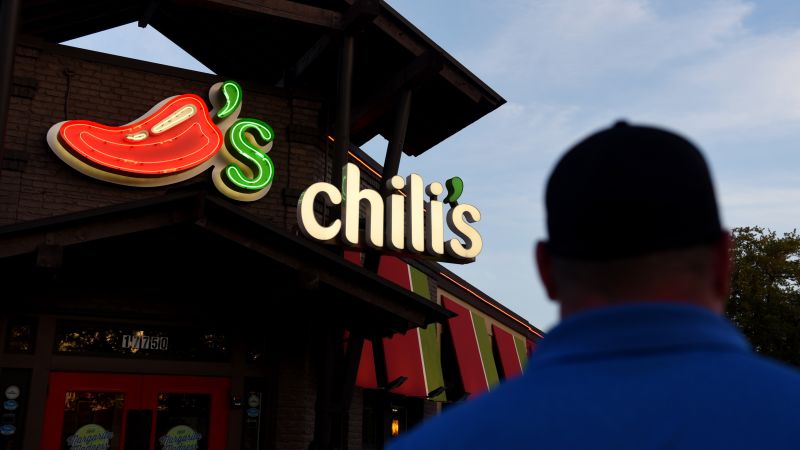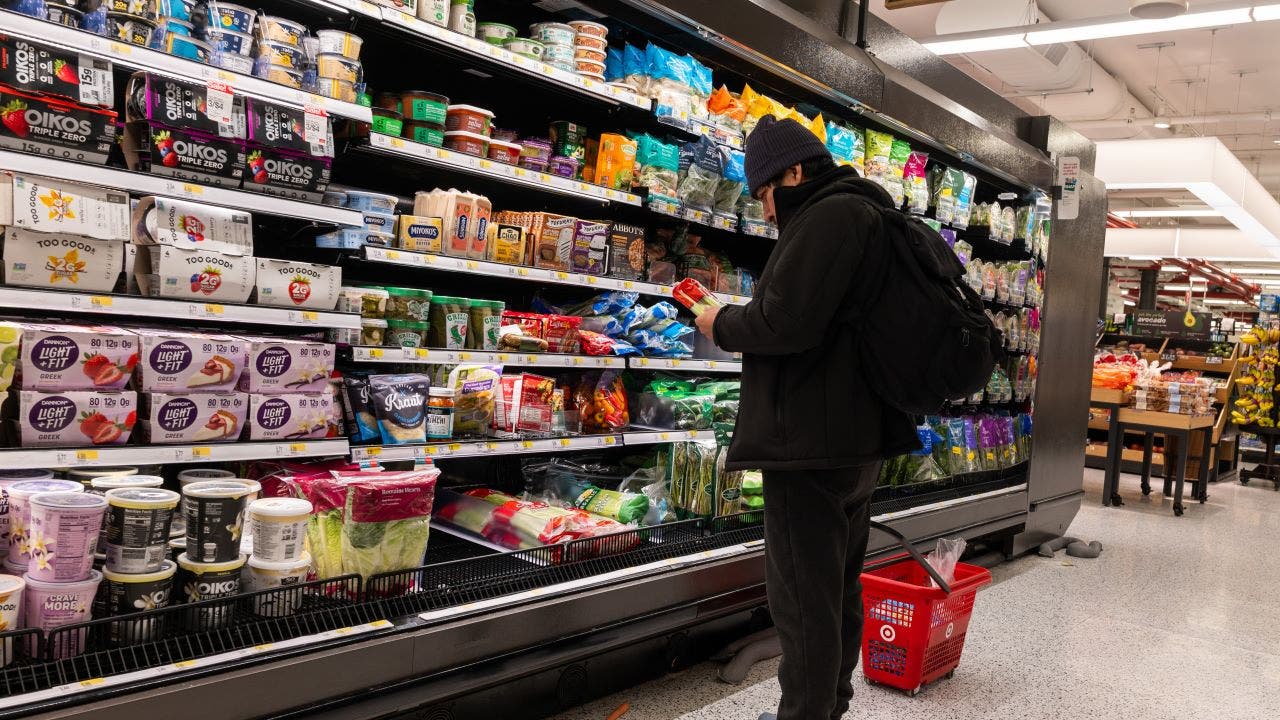New York
Chili’s, the 49-year casual dining chain that American diners forgot and Wall Street turned its back on, has made a stunning comeback. It’s America’s hottest restaurant chain, a sentence that hasn’t been uttered since NSYNC sang its baby back ribs jingle in a 2002 commercial.
For years, Chili’s, a purveyor of greasy American staples, was losing out to flashier and more up-to-date restaurants like Olive Garden and Texas Roadhouse when customers wanted a casual and inexpensive dinner out with the family.
Chili’s was doing just about everything wrong. Its advertising was focused on discounts, biting into profits. That meant it couldn’t invest in modernizing its restaurants, upgrading its menu and keeping its staff happy, leading employees to head for the exits. The slow service and outdated atmosphere frustrated customers.
“We were very much on a strategy of just trying to be the lowest price out there,” Kevin Hochman, Chili’s president and CEO of its parent company Brinker International, said in an interview with . “That made it very difficult for us to make the needed investments in labor and in the restaurants.”
But under Hochman, who took over in 2022, Chili’s upgraded its french fry and chicken tender recipes, offered fast food-like prices and caught fire on TikTok with customers posting videos pulling apart gooey mozzarella sticks.
That helped Chili’s buck this year’s restaurant slowdown. Institutions like Red Lobster and TGI Fridays filed for bankruptcy, Denny’s and Applebee’s announced major store closings, and customers reached their breaking point with McDonald’s, Burger King and KFC’s prices.
But Chili’s is winning customers hunting for deals with $6 margaritas, a new $10.99 “Big Smasher” burger it advertises as “twice the beef of a Big Mac,” and a special starting at $10.99 that comes with entrée, appetizer and a drink. At the same time, Chili’s is drawing customers with more discretionary income willing to spend on pricier options like margaritas with Casamigos and Don Julio tequila, steaks and ribs.
Chili’s sales at restaurants open for at least one year surged 14.1% last quarter and 14.8% in the prior quarter. Chili’s streak has lifted Brinker’s (EAT) stock more than 200% over the past year.
“It’s sort of unheard of for a mature brand with more than 1,000 restaurants to put up these types of numbers,” said Brian Vaccaro, an industry analyst at Raymond James. “The trends are just getting stronger and stronger.”
Hochman, a marketing veteran who turned around KFC and Old Spice, didn’t try to reinvent the wheel at Chili’s.
Instead, he focused on the basicsimproving the food, streamlining operations and sprucing up restaurants. Parent company Brinker has poured more than $400 million to simplify Chili’s menu, add more servers and bussers and renovate restaurants.
There were too many options on Chili’s menu, bogging down cooks. “When you have certain amount of labor and you have a complex menu, it’s very hard to execute that consistently,” Hochman said.
Chili’s trimmed down the menu to four primary areas: burgers, chicken crispers, fajitas and margaritas. Chili’s removed more than 50 items, roughly 25% of the menu. It went menu item by item to try to make what was left “more craveable” and efficient for kitchen staff to prepare, he said.
One major menu win was a change to Chili’s Chicken Crispers, its trademark version of chicken tenders.
Chili’s began offering five and six-count Chicken Crispers to encourage customers to trade up to bigger, more expensive portions. It removed corn on the cob as the side, replacing it with mac and cheese, and added more dipping sauce options. Chili’s killed off its tempura-style breading procedure for Crispers and shifted exclusively to a single breading option.
“When you have two breading systems, it’s very, very difficult to do that in more than one or two quantities at a time,” he said.
Chicken crisper sales surged, increasing more than 50% since the changes went into effect last year.
More recently, Chil’s blew up on TikTok with its “Triple Dipper” platter, which lets customers choose from three appetizers, including mozzarella sticks, nachos and chicken wings, for under $20. The platter had been around for decades, but Chili’s started advertising it prominently on social media in the spring.
The deal went viral on social media, with customers posting videos of their reviews of the food.
One video of a customer dipping mozzarella sticks in sauce and eating the stringy cheese has more than 16 million views. “Never in my whole life would I have thought Chili’s has the best, dare I say, mozzarella stick,” another customer posted. The video has 1.4 million views.
The offer has grown to make up 11% of Chili’s business, with sales growing 70% over the last year. Most importantly, the viral success is drawing younger customers to Chili’s for the first time.
“It’s effectively reintroducing the brand to a younger demographic that never considered Chili’s because that’s mom and dad’s brand,” said analyst Brian Vaccaro.

Customers like Spencer Jones hadn’t been to Chili’s since high school more than a decade ago, but he and friends gave Chili’s another shot earlier this year after seeing more of its advertising.
Jones went in with low expectations, assuming the food had gotten worse and the margaritas would be watered down. He was surprised.
“We’ve been sticking around because those southwestern egg rolls and margaritas are perfect,” he said. “Especially with inflation, Chili’s prices are at a really good point.”
Jones and his friends now have a bi-weekly happy hour at Chili’s in Washington, D.C.
“I definitely enjoy Chili’s and am glad to have it back in my hot spot rotation,” he said.
But the big question will be whether Chili’s can sustain its growth, especially as some of the novelty fades and competitors try to copy its strategy.
“How much of this is real versus a TikTok fad?” Vaccaro said. “We don’t know the answer to that.”
Applebee’s recently launched a $9.99 “Really Big Meal Deal” and took aim at Chili’s on X, implying that its deal was better than Chili’s because it’s $1 cheaper. Applebee’s version also includes either a fried chicken sandwich or bacon cheeseburger, endless fries and a soda.
Chili’s may also no longer have McDonald’s as a foil. Chili’s has been advertising its prices against McDonald’s and other fast-food chains, but McDonald’s is adapting.
McDonald’s recently unveiled the “McValue” menu, a new, budget-friendly category that will roll out at US restaurants in January. The popular $5 meal deal, unveiled earlier this year, will be the centerpiece. The menu will also feature a new “Buy One, Add One for $1” option that includes breakfast. Burger King and Wendy’s have stepped up their own value meals as well.
Red Lobster is also beginning a comeback under 35-year-old CEO Damola Adamolekun, considered a rising star in the restaurant industry. Adamolekun plans to focus on improving table service, tightening the menu to simplify kitchen operations and sprucing up dining rooms to win back customers, a similar strategy Chili’s implemented.
But CEO Hochman isn’t concerned about competitors like Applebee’s and others undercutting Chili’s on prices because they “haven’t been in the gym working out for two years” like it has.
“It’s very, very hard to replace that all in a short period of time. It’s going to take them several years to catch up,” he said. “You can undercut us all you want. It’s not going to matter.”















